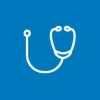The cultural and linguistic differences between German-speaking and French-speaking Switzerland may be obvious. A moneyland.ch study shows that differences in premiums paid for compulsory health insurance, while less apparent, are also significant.
The “Röstigraben” and health insurance premiums
More than 500,000 pieces of data relating to health insurance premiums in 2017 and 2018 were analyzed for the moneyland.ch study. Premium regions, demographics, insurance providers insurance models and deductible models were accounted for. Premiums in individual premiums regions were weighted based on the primary language of the region (German, French, Italian) to determine average premiums.
Result: Adults in French-speaking Switzerland will pay much more for compulsory health insurance in 2018 than will adults in German-speaking Switzerland. Based on a weighted average, residents of French-speaking Switzerland will pay 429 Swiss francs per month in premiums during 2018. The average monthly premium for residents of German-speaking Switzerland in 2018 is 361 francs. Over the course of the year, French-speaking Swiss will pay 800 francs more then German-speaking Swiss for the same insurance coverage.
With an average monthly premium of 400 francs in 2018, Italian-speaking Swiss will pay around 340 francs less than French-speaking Swiss and around 470 francs more than German-speaking Swiss over the coming year. So from a geographical perspective, residents of Switzerland share anything but a unified health insurance premium.
French-speaking Swiss pay the highest premiums
Residents of western Switzerland have to reach further into their pockets to cover their health insurance premiums. Policyholders in the Canton of Geneva are the hardest-hit, with a 480-franc average monthly premium for adults. Other French-speaking cantons also have high average premiums, including Neuchâtel at 426 francs per month and Jura at 422 francs per month.
A strong contrast is seen in the Canton of Valais with its internal linguistic divisions. While adult policyholders in majority German-speaking premium regions of Valais will pay an average premium of 318 francs per month in 2018, those in majority French-speaking premium regions will pay a higher average premium of 345 francs per month. So the “Röstigraben” is highly visible in the mountainous canton’s health insurance industry.
Young adults and children are also affected
It is not only adults above the age of 25 who are affected by the geographical differences. Premium disparities also impact children (up to 18 years old) and young adults (19 to 25 years old). The average child in French-speaking Switzerland will pay 115 francs per month for health insurance in 2018. Children in Italian-speaking Switzerland will pay an average of 105 francs per month and those residing in German-speaking Switzerland will pay 98 francs per month, on average, for the same coverage in the same year.
Young adults in French-speaking Switzerland can expect to pay an average premium of 394 francs per month. The average monthly premium is 358 francs per month for young adults in Ticino and 325 francs per month for young adults residing in German-speaking Switzerland. Over the course of 2018, a young adult in French-speaking Switzerland will pay 818 francs more, on average, than a young adult living in German-speaking Switzerland. So the difference in average premiums paid by young adults across linguistic regions is even bigger than the difference in adult premiums.
Health insurance premium increases are bigger in French-speaking Switzerland
In addition to higher premiums, western Switzerland also has to cope with disproportionately large premium increases. Based on a weighted average, premiums in French-speaking Switzerland will increase by 21 francs per month in 2018 compared to 2017. That is an increase of 6%. By comparison, premiums will increase by 15 francs per month (4.6%) in Ticino and by 11 francs per month (3.7%) in German-speaking Switzerland. The countrywide average increase is 4.3%.
The largest increase in French-speaking Switzerland affects premiums for children (7%), followed by young adults (6.3%) and adults (5.9%). In Italian-speaking Switzerland, premiums for young adults will increase by 4.7% in 2018, while adult premiums will climb by 4.6% and premiums for children will increase by 4.4%. In German-speaking Switzerland, young adults will see premiums rise by 4.1%, children by 3.9% and adults by 3.7%.
Growing discontent in French-speaking Switzerland
Residents of western Switzerland have paid the highest health insurance premiums in the country for several years now. The fact that premiums are also increasing more sharply in French-speaking Switzerland has added fuel to the fires of discontent with the health insurance system. The constant hikes in premiums have hit French-speaking Swiss exceptionally hard. These factors will likely sharpen the debate on health insurance reform in that part of the country. Historically, French-speaking Swiss have shown a stronger interest in a unified health insurance provider than their compatriots on the other side of the Röstigraben. moneyland.ch users in French-speaking Switzerland have also repeatedly indicated discontent with the rapidly-growing compulsory health insurance premiums.
More on this topic:
Swiss compulsory health insurance comparison

 Deal of the Day
Deal of the Day 








